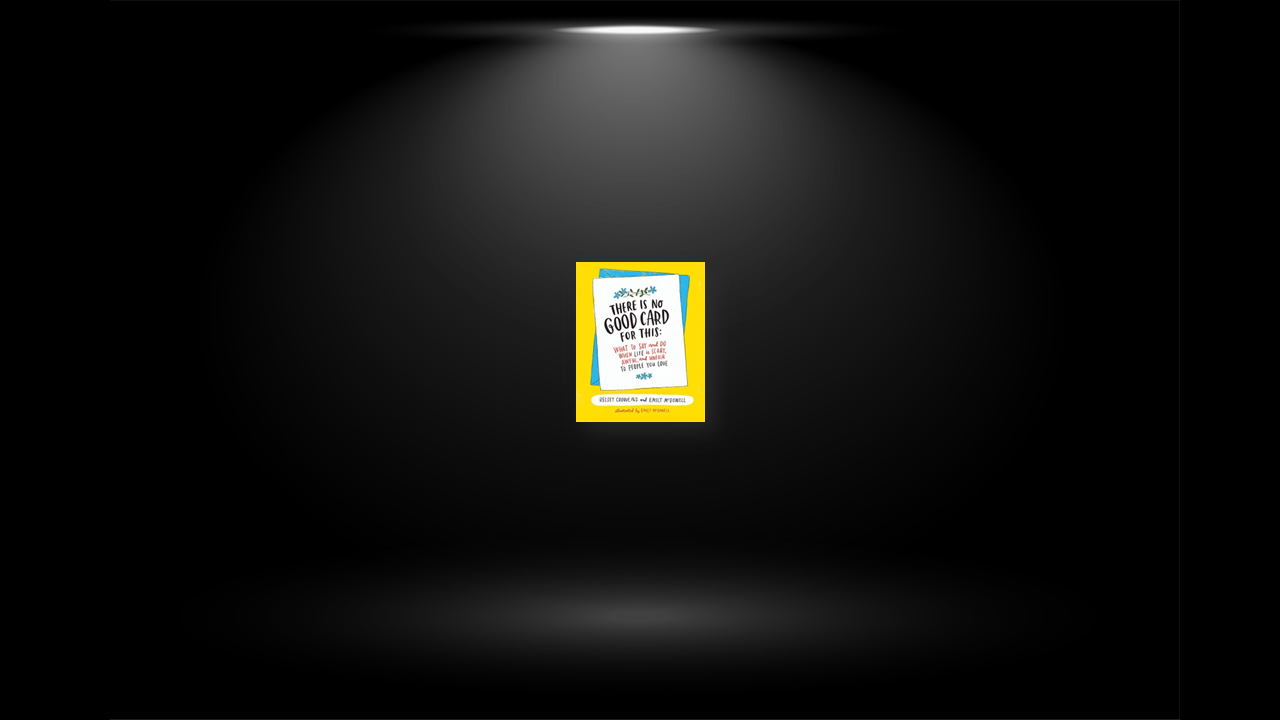Put Your Own Oxygen Mask on First
What makes us shy away? Meet the Empathy Roadblocks:
FEAR OF DOING THE WRONG THING. “Oh God, what if I make it worse?” We feel pressure to cure the situation with the perfect gesture, and if we fail, we fear we’ll ruin a relationship, or just embarrass ourselves.
FEAR OF SAYING THE WRONG THING. We don’t know if we are supposed to know certain things; we don’t want to make someone feel like the source of gossip; we don’t want to bring up negative feelings if someone wasn’t thinking about that awful thing that happened. If we’re not really close to the person (e.g., a coworker), we might feel like it’s not our “place” to help, and that when we do, we’ll say something that makes them feel worse.
FEAR OF NOT HAVING TIME/BANDWIDTH. We’re busy, life is crazy, and we don’t want to commit to more than we can handle. We’re not sure how much of a commitment this stuff involves.
Standing in Their Shoes
Crying for days on end, feeling numb, not sleeping for weeks, pretending to not be grieving so other people feel more comfortable around you—it’s all exhausting. Keeping a lid on the chaos we call “life” is hard enough as it is, but then when we’re at our lowest, and possibly consumed with a host of additional responsibilities related to our difficult time, life becomes one big tornado of unmanaged to-dos like laundry, shopping, cleaning, kids, and so on. Projects at work and at home don’t stop just because your world did. Figuring out what needs to be done, and then, who can do it—which means assigning and coordinating jobs, managing people’s feelings around jobs they’re given, and dealing with the occasional lack of follow-through—is enough to make anyone want to crawl into a hole and do nothing.
If a person is sobbing over a pile of dishes and a pile of bills— And what feels like a pile of rubble that was formerly their life- It can feel painful and even pointless to ask for help.
This means that as a caring bystander, you have the opportunity—and the responsibility—to show up and offer help without being asked. Yes, this can feel really awkward and uncomfortable when you’re not used to it. But if you’re worried that you’ve screwed up in trying to offer support, said the wrong thing, or felt like the biggest idiot—remember that you’re not feeling half as terrible as the person at the center of it.
Reaching out and fumbling is often far better than not reaching out at all.
Your Kindness Is Your Credential
Compassion for others isn’t fully possible if we don’t also have compassion for ourselves. Nobody is perfect—not you, not the people you lean on to get your own support. Being kind does not mean you are not allowed to also be a Fretter or a Foister. You may have big problems setting boundaries, or you may have a really full, stressful life right now, which makes it really hard to change or add something to your routine. What we really hope is for you to simply feel more aware of the human tendencies that can get in the way of fully expressing compassion: stress in the face of inconvenience, fear of setting boundaries, and pressure to do things “perfectly.”
If we are to fully give, we must do so by first giving compassion to ourselves. Because what someone in crisis really needs is not your skilled perfection, but you.
Listening Speaks Volumes
Knowing when to listen and what to say starts with: •SAYING “I’M SORRY.” •ASKING “HOW ARE YOU, TODAY?” (Don’t forget to listen to the answer.) •FOCUSING ON AND ACKNOWLEDGING THE PERSON’S PRESENT FEELINGS, NOT JUST THE FACTS. •PAYING ATTENTION TO CUES: IS IT A GOOD TIME? OR DOES THE PERSON NEED A LITTLE SPACE? (DON’T BE AFRAID TO FOLLOW UP IF NOW ISN’T THE RIGHT TIME.) •EXPRESSING THAT THE PERSON IS NOT ALONE. •EXPRESSING FAITH IN THE PERSON’S (PROBABLY RATTLED) JUDGMENT. •SHARING THE LOVE. •USING TECHNOLOGY FOR GOOD. •GIVING SPACE WHEN SPACE IS NEEDED. •BEING YOURSELF WITH YOUR “MUNDANE” PROBLEMS.
Small Gestures Make a Big Difference
Adequate is awesome. If what you can or want to give is nothing more than a simple “i’m sorry” that’s better than turning away.
If the thing you most love to give isn’t needed right now, your offer (even if it’s not accepted) is better than turning away. And if what you want to give is the moon and stars because you have that much time, inclination, or sense of responsibility (not to mention resources and a rocket ship), that’s better than turning away, too.
If we imagine that helping equals rescuing someone from their pain, we’re more likely to shy away from the effort. We could easily feel unprepared to handle such a large responsibility or erroneously conclude it’s not our place to do so in the first place. Even when we’re feeling confident in our ability to shoulder a ton of things for other people, it takes only one long day at work, one awful night with the kids, or one awesome invitation to get away for the weekend for us to decide we need to relegate that big job of empathy for another day. If you are struggling with feeling like what you’re giving is inadequate, know this: you are probably doing great.
Doing anything, Even small things is totally adequate. And adequate is awesome
Please Never Say This
Empathy is not telling someone how to feel. Squelch the following impulses: •SUGGESTING THAT YOU KNOW HOW SOMEONE FEELS •IDENTIFYING THE CAUSE OF THE PROBLEM •TELLING SOMEONE WHAT THEY SHOULD DO ABOUT THEIR HARD TIME •REACTING WITH PESSIMISM •MINIMIZING PEOPLE’S CONCERNS •BRINGING “PERSPECTIVE” TO A SITUATION WITH FORCED POSTIVITY OR PLATITUDES •TELLING SOMEONE HOW STRONG OR SAINTLY THEY ARE.
Too often, efforts at comforting a suffering person are made before that person is asked how they’re feeling. We want to help by fixing, but that often implies the “fixer” is right, and the person being fixed is “defective” for not having “solved” the problem on their own. When such attempts to comfort don’t work, it’s not a problem of the sufferer being unappreciative—it’s simply that the consoler failed to connect.
Instead: ASK. LISTEN. LEARN.
For a griever, there is rarely any more comfort than companionship on the awful path of sorrow. Hopefully, that path will also include joy in time. But there is no guarantee that it will, and there is no timeline for when it does. There is no human gain in shying away from that reality, as difficult as it may feel. That is the plight of the griever; that is the plight of the witness.


